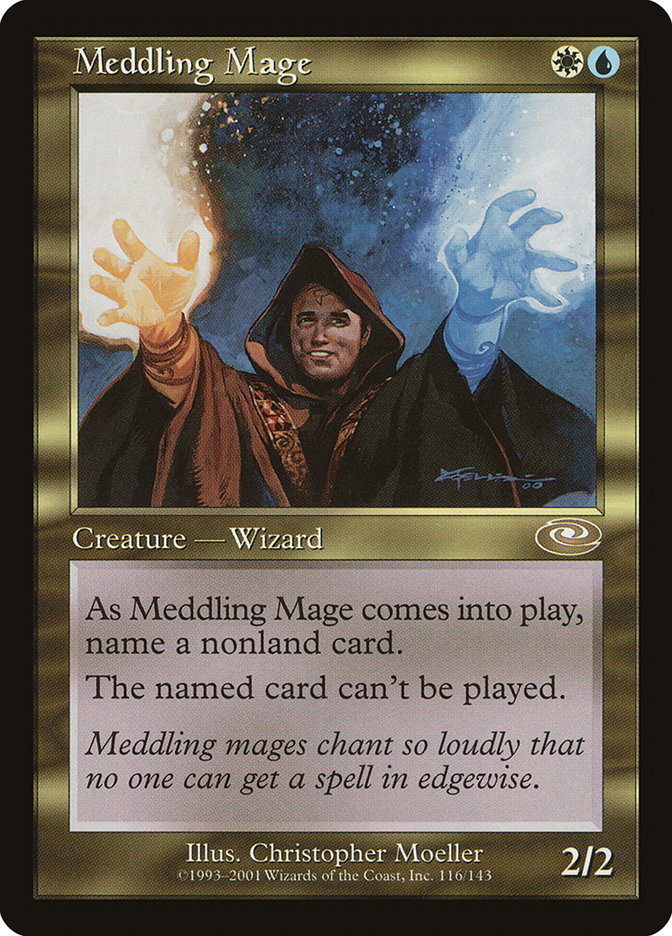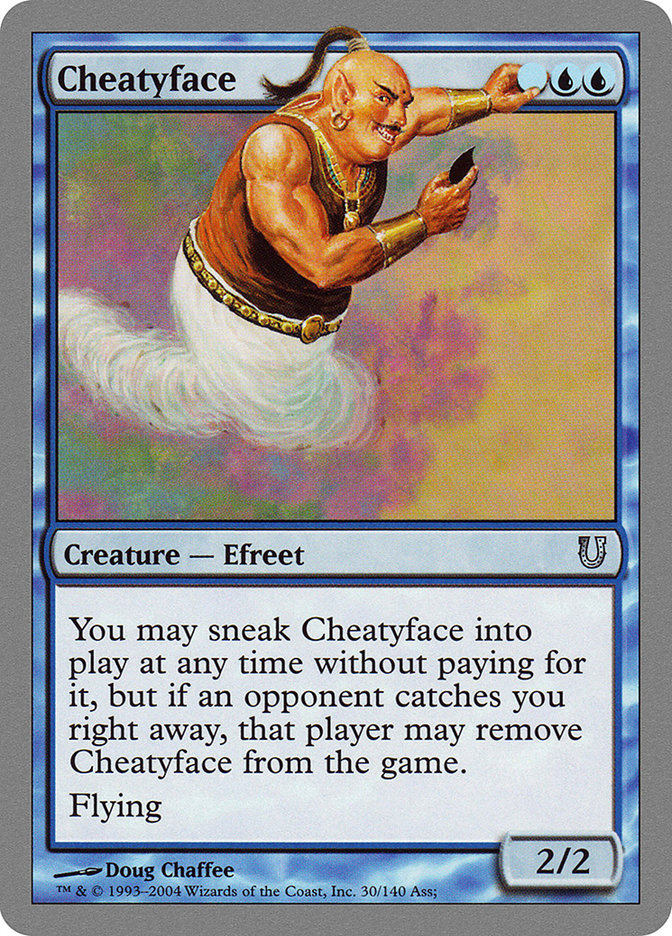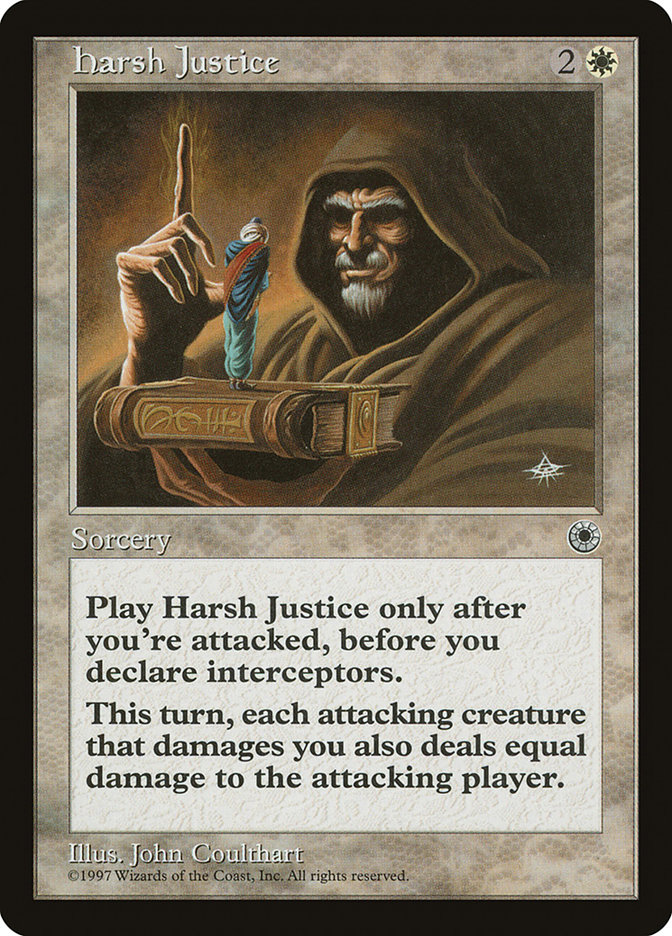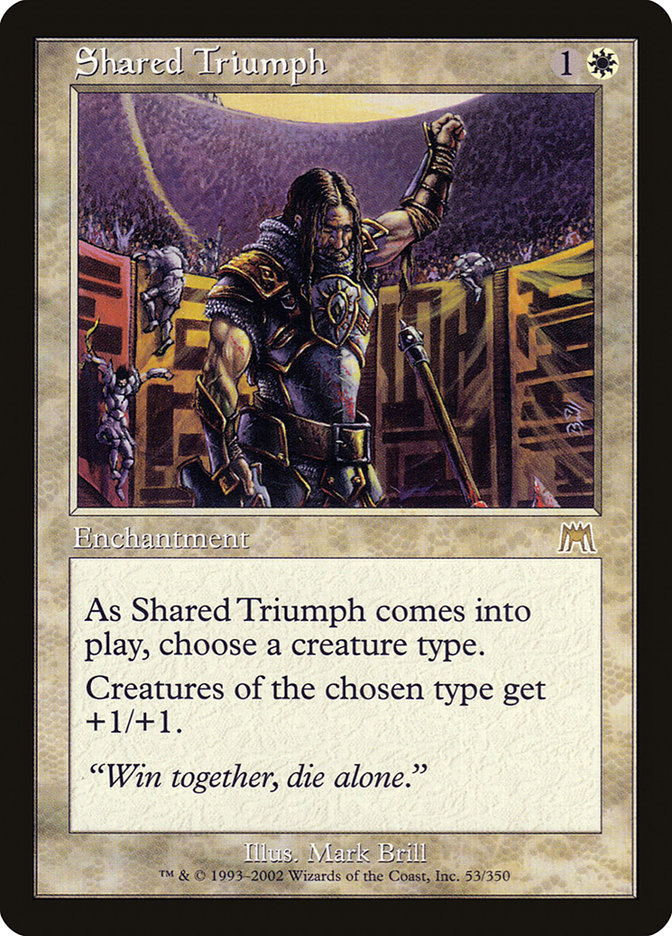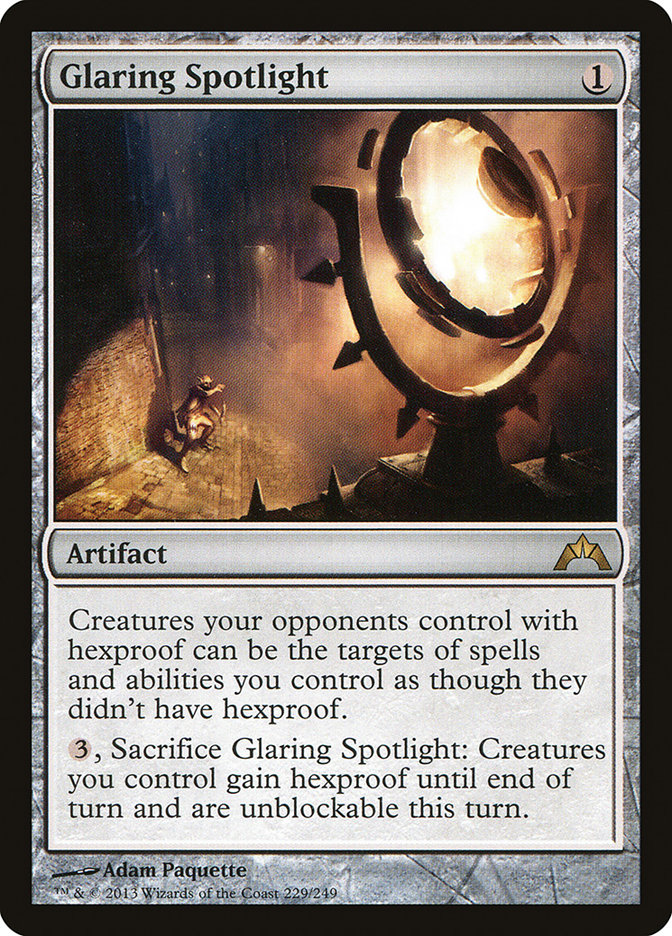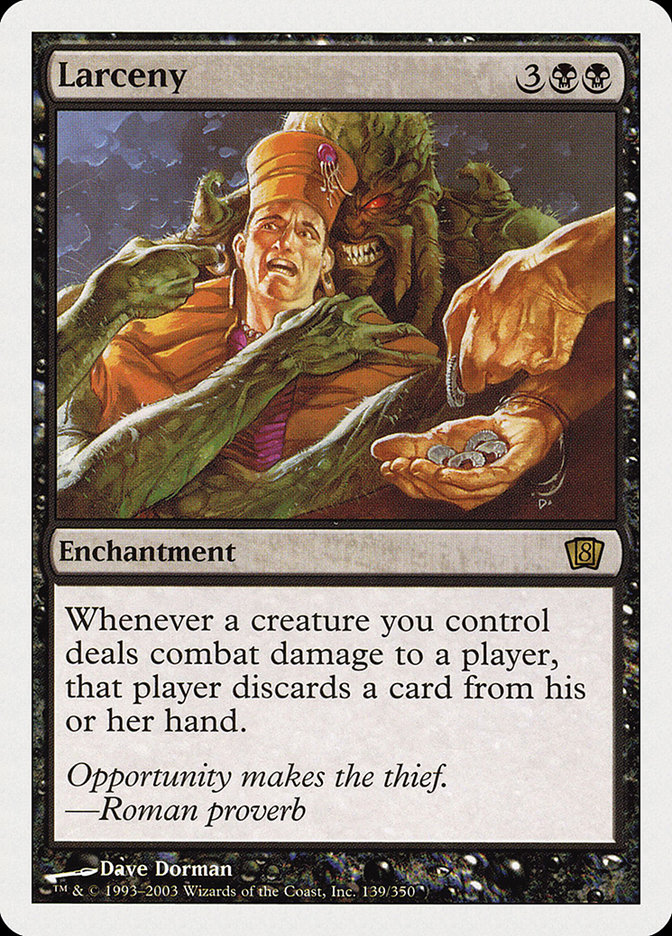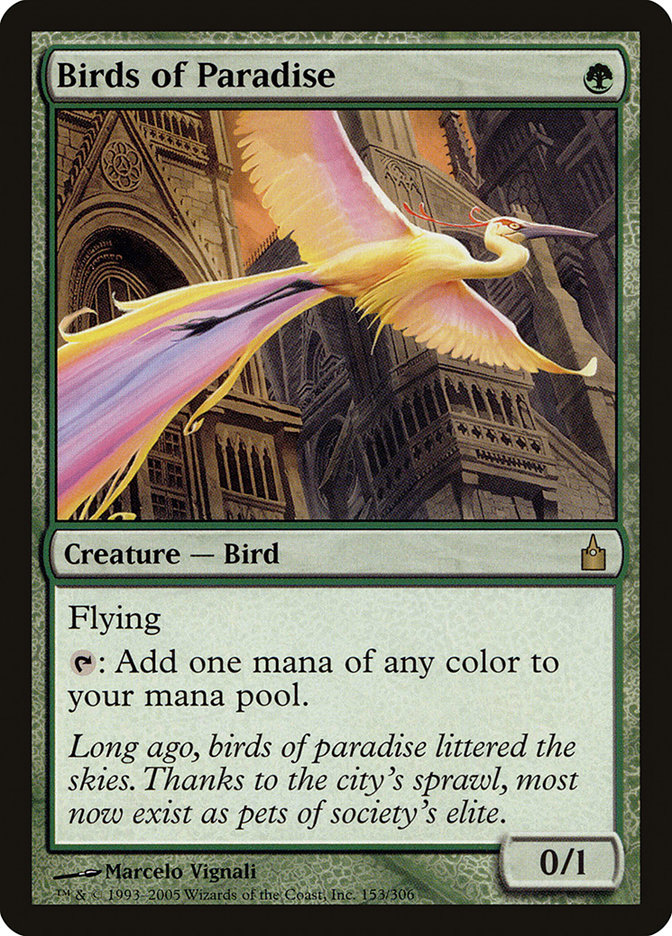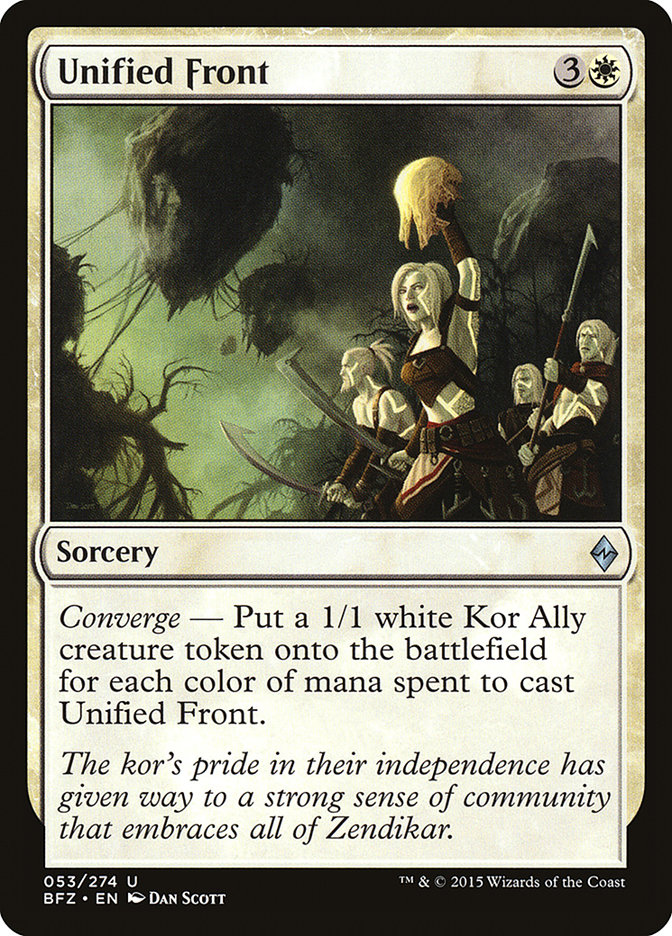Disclaimer: There’s not much Commander here content this week. If you’re interested in only the 100-card decks, we’ll chat next week. If you like deep delves into some Magic history, you’ll want to stay tuned.
It’s Pro Tour Hall of Fame season, and the past looms up before us in many ways, shapes, and forms. One particular form it took last week was a former player haranguing me on social media about not catching enough cheaters in 1999, specifically at Pro Tour Chicago. “You didn’t catch enough cheaters” is a charge that’s never been levelled in my direction, so it was eyebrow-raising to say the least. The person’s spurious and somewhat ranty claim was that Bob Maher cheated in the finals and … well, I’m not actually sure what the rest of the claim is.
He didn’t. Here’s the film if you’re so inclined.
In fact, Bob was among the players who alerted staff that not playing with sleeves (which had to come off for the cameras back then) was a bad idea because of the variance in print runs, making the backs of cards identifiable by set. He even pleaded with the staff to come up with a way of covering decks, to no avail. The wild allegations aren’t the point here; it’s just a window to look back into a wild and wooly time in the game’s history and how things changed.
Before we talk more about what I did or didn’t do 20 years ago, I’ll briefly go over my Hall of Fame ballot. I’m not going to do a full article on it, because I’ve said nearly everything there is to say about four of the five people on it, at least in regards to the Hall. The top person on it, however, plays into the very conversation we’re about to have.
My Ballot
- Chris Pikula
- Carlos Romao
- Marijn Lybaert
- Mark Herberholz
- Reid Duke
I’ve been back and forth about Marijn and Heezy over the years, sometimes on in weaker classes, sometimes off in stronger ones. This year, I’ve intentionally put an old-school slant on my ballot. Like in many sports, there are era-adjusted stats. In the case of the Pro Tour/Mythic Championship, there’s a “more events” bias. There were fewer opportunities to succeed back in the day, so one player’s three Pro Tour Top 8s might indicate a better career than someone’s more recent four. But that’s not really the topic I want to delve into. The short version is that every one of those players has a defendable Hall of Fame resume. They’re people that the highest levels of play would benefit from having around. They’re all Hall-worthy. It’s really as simple as that.
As far as the new guy, if you’ve been paying attention to Magic in the last decade, you’ll know Reid Duke. The answer is the same – his resume is powerful and the game truly benefits from his continued presence. There are few better ambassadors for the game, and he’s just a genuinely good person to be around.
But let’s talk about Chris, with a little context. For those of you who know me as only a Commander person, I was at one time a Level 5 judge. I Head Judged more Pro Tours than anyone who wasn’t a WotC employee until fellow Commander RC member Toby Elliott passed me by one. I would like to hope that my reputation for fairness and uncompromising integrity still lingers. My ascendancy was in large part due to my ability to both prevent and catch cheaters and the political will to clean up the game. That’s not the kind of thing you do alone.
Even before my rise, Chris was leading the charge to change the face of high-level Magic. He began a grassroots campaign, using his own notoriety (he won a Magic Invitational, and the card Meddling Mage was the result) as a launching point to getting others on board. It was relatively simple – just stop associating with known cheaters.
There was certainly more to it than that, but the ground truth is that I consider Chris to be the genesis point of getting Magic out of the Wild, Wild West and into a more civilized era. To some extent, without the legacy of Chris Pikula, the legacy of Sheldon Menery would have traveled a much more difficult path. Add that to the fact that he was an accomplished player, and his vote from me is assured. The Hall of Fame is not just about results, it’s about impact, and there have been fewer players that have had a longer-lasting impact on the game than he has, even if it’s not particularly quantifiable. Chris and I were only ships passing in the night back then and met only a few times (until becoming quite friendly over the last few years), but he laid a foundation that I helped build a fortress on.
He’s also a fan of two of my favorite things: heavy metal and Kubrick films. He turned me onto bands like Russian Circles and Pallbearer. We don’t quite see eye-to-eye on the best film from our greatest director; he says Barry Lyndon, I say A Clockwork Orange. It’s a testament to the kind of person that Chris is that when I was in recovery from radiation treatment, he sent me a copy of Barry Lyndon as a get well present after an online conversation in which I confessed I was only vaguely familiar with the film. To make a long story short, the Pro Tour Hall of Fame has a huge Chris Pikula-shaped hole.
I suppose you’re probably still wondering why I didn’t catch more cheaters in 1999. The simple answer is that I had already, just on a different stage. That Chicago Pro Tour was my first in the US, since I was living in Belgium at the time.
My first Pro Tour had been in Mainz, Germany, in 1997, as a Level 2. It was a rugged introduction to professional play. I saw many things that didn’t pass the sniff test – from players (not using sleeves) turning all their lands one direction and spells the other to blatantly drawing extra cards and lying about life totals. One of the sort of well-known cheats was to fail to draw a card and then claim that the opponent had drawn too many. The penalty guidelines back then were chaotic at best, and game losses and disqualifications were sometimes nonsensical. I even saw two players confess to collusion on a match in the last round – and I don’t mean in a roundabout way – and the Head Judge telling them to not worry about it. To me in that moment, the Pro Tour was a mess, and there was only one reasonable thing to do: work my way to the top and fix it.
I was a Level 3 Judge by the time I went to Chicago in 1999, having made it at GP Antwerp in 1998. By then I had already worked several other high-level events: Grands Prix, Nationals, and the European Championships. I was reasonably well-known in Belgium, the Netherlands, northern France, and western Germany. I like to believe that I had already developed a reputation for integrity, but I can see that to some sensibilities my approach may have been too authoritarian. The game needed to be cleaned up, after all.
At the time in high-level Magic, there were long discussions with Head Judges when players did stuff they weren’t supposed to. It often delayed tournaments as the HJ was engaged in hearing a player plead their case, either for themselves or against someone else. This would have to change as well. The worst part was that HJs would make their decisions and then more discussion would ensue, most often with the Tournament Manager, further delaying things. Sometimes they were even let back into events after jaw-droppingly blatant acts. Folks who played back then will remember long evenings of events that ran hours past their scheduled times. I made notes.
In fact, at that Pro Tour, I made lots of notes. I watched two high-level judges in particular, the event’s Head Judge Nat Fairbanks, and future Level 5 Mike Guptil. To say I learned a great deal is an understatement. We really were making up the administrative parts of how we ran Pro Tours as we went along. Mike and Nat were leading forces in putting together coherent and consistent operational documents. In fact, years later I basically copied what Mike had done and made it the de facto standard for running high-level events. That event allowed me to get better-known in the high-level American judge community, which when I returned to the States in 2000 helped springboard me to attending lots of high-level domestic events (although coming back to Alaska instead of the lower 48 was like still being overseas). Of course, just months after I had left Belgium, Worlds 2000 was in Brussels, so I made that halfway-around-the-world trip. There were adventures there, but that’s a story for another time.
One of the things that I noticed at that Chicago Pro Tour and filed away for much later was the fact that we didn’t seem to be doing anything about proactively catching cheaters. We certainly did it passively and reactively, and we did a fair amount to prevent cheating (like deck checks and sitting judges on matches), but it seemed like we could do more. We were already working hard; I thought we could also work smart too. This idea germinated for a few years before I developed the philosophy that when you prevent someone from cheating, they don’t cheat for a game or a day. When you catch someone cheating, they don’t cheat for a year or more (theoretically, since suspensions were still a chaotic thing back then too). I then married the thought with what Pikula and some other folks were doing at the time – changing the culture. Over the next few years, I shared my thoughts with other judges of all levels. We talked about how we’d shift our own Judge culture.
For the longest time, it seemed like players and judges were on opposite sides. I realized that we actually weren’t. Save for players having the meta-goal of winning the whole thing, both players and judges want clean, well-run events. Magic is already a difficult enough game. Having to also keep an eye out for shady behavior makes it more so. It seemed to me that the best way to look out for the best interests of the players would be to close the divide between us. I wanted to eliminate the “us versus them” idea. To that end, I actively engaged players. Now being a regular Grand Prix Head Judge and fixture on the Pro Tour, I established relationships with players. Sometimes it was a simple “How’s it going?” or recognition that it was nice to see someone again. There are lots of good people playing Magic; it was easy to find the ones I wouldn’t mind being around.
I also realized that there were two kinds of relationships to set down. One was with the clean players, letting them know I was on their side and listening to their ideas on how we could improve our processes in all phases of running events. The other was with the players who had less-than-desirable reputations. I would also engage them before events started. I’d roam the hall the evening before the main event started, seeing who there was to see. I’d chat with anyone, and my message to the troublemakers was friendly but clear: I see you. My somewhat naive hope was that a little positive attention might spur them on to better behavior. Of course, the undeniable message, and the one that paid greater dividends in the long run, was that we would pay attention to them. Cheaters often flourish because they can exist in the shadows. We were going to turn up the lights.
I really can’t overstate the value of tournament officials creating linkage with players. Trust goes a long way. If someone trusts you, they’re willing to give you the benefit of the doubt even if they disagree with you. I was at a big event in Atlanta sometime around 2003 or 2004. There was an incident with a player (I actually don’t recall what the game specifics of the situation were) who was completely on tilt. He thought that he had been treated poorly by his opponent and the staff hadn’t helped him. Tempers were high by the time I got on the scene. He continued to raise his voice. Here’s where, in the past, I might have thrown gas on the fire by attempting to shut him down with aggression matching his own. Realizing that that was only going to escalate the situation, I tried a different tack, since I knew the player reasonably well. I said his name and then, “What I’d really like to do is to keep you in this tournament.”
The clear, underlying message was that his behavior wasn’t going to be tolerated, but it was delivered in such a fashion that he understood I was also taking a step in his direction, attempting to continue the relationship we had developed (broadly speaking, with players in general) that I was considering his best interests as well, not just the tournament’s. I promised to talk with him more about the situation later, but for now we’d need to move on with the tournament. For me, it was a landmark turn in approaching how we were going to change high-level event culture.
I made Level 4 in 2004 and Level 5 in 2005 (coincidentally, at Pro Tour Atlanta). Once I had the responsibility and authority, I picked up on where a few others, like Mike Guptil, had left off. The Organized Play program had matured at this point. We had more resources to spend on education and training of Judges instead of just trying to survive from event to event. One of the things we did was think about the way that players cheat.
I certainly don’t have any statistical evidence, but at least anecdotally, most cheats are cheats of opportunity. I’m not talking about angle shooting here, but recognized errors that go uncorrected – like your opponent changes their life to fifteen when you know it’s eighteen, but you don’t say anything, or they bin a creature that’s not supposed to be dead and you let it go. The planned cheats, like bringing your own Sealed deck or adding cards to a Limited deck, are the minority. They’re also the easier ones to deal with, because the variables are fewer. We tried a few things with excellent results.
One was to trap decklists for Sealed events. It was a well-known thing to print the decklist online, put in your own broken deck, and then fill it out with the name of the person you swapped with. Clever TOs and judges avoided the problem by printing deck sheets for their events in different colors. Going back to the prevent-versus-catch thought, we made a subtle change to the list as it appeared online. For example, at a Grand Prix in Richmond in 2006, we changed Birds of Paradise on the list to Bird of Paradise. If you weren’t really looking for it, you’d never know. The first thing that the deck check team did when they collected the lists was to search for the ones that we didn’t hand out. There were a record number of disqualifications.
The other, even simpler, thing was to institute mid-round deck checks, especially of players who had already been pregame deck-checked. It was so clever that I wondered why we hadn’t thought of it before. Again, we caught quite a few people inserting cards into their decks.
Preventing and catching cheats of opportunity was a much more difficult problem, and one that can’t have met with the same level of success. The only way to approach it was changing the culture – and part of the culture was continuing to educate players that judges were actually on their side. It was also encouraging the player community to help itself by disassociating with shady players. The strongest thing we could do here is train judges to be good players themselves or recognize battlefields that are commonly confusing. That way, they have a better idea of how a line of play might have gone and see where a player intentionally did something they shouldn’t have.
In my second or third Pro Tour as a Head Judge, I scheduled a pre-event briefing from one of the judges who had played on a previous Pro Tour. The briefing reviewed the trickier cards in the format and the common problem situations that were likely to arise. This helped not only in detecting dishonest behavior, but simply getting the rulings right more often – thereby building more trust between players and judges.
There are a few other methods of catching cheats of opportunity that are as far as I know still in use, so I’m not going to give away all the secrets. The bottom line is that high-level Magic became much cleaner. We were never perfect, but things got way better.
Clearly, I didn’t do all this alone. It took dedicated effort and education from a host of judges, staff, and –I can’t stress this enough – players. Buy-in from players as a community made the effort far easier. I just had some ideas, and a bunch of smart people help turn those visions into reality. I’m quite proud of this legacy on behalf of both myself and the Judge Program.
I didn’t catch enough cheaters in 1999 because I didn’t yet have the experience, skill set, and authority – but we damn sure made up for lost time.
Sheldon Menery’s Deck Database
Check out our comprehensive Deck List Database! Click each section for lists of all my decks.
Signature Decks
These are the decks that define my personal play style to the greatest degree and to some extent lay the original foundation of the format. They’re also the ones you’re most likely to see me bringing along to spell-sling at an event.
The Chromatic Project
The Chromatic Project started as an effort to build at least one deck of all 27 possible color combinations, which was expanded to 32 when we finally got four color commanders. There’s more than one of some combinations, mostly because I have a Temur problem, plus some partner combinations are too enticing to pass up.
Mono-Color
Guilds
Shards and Wedges
Four Color
Five-Color
Partners
The Do-Over Project
The Do-Over Project is the next step after the Chromatic—building a deck with each of the same Commanders, but not repeating any cards save for basic lands (props to Abe Sargent’s “Next 99” idea). The Do-Over Project is still ongoing because we keep getting saucy new sets with creative and colorful commanders to build new decks with.
If you’d like to follow the adventures of my Monday Night RPG group (in a campaign that’s been alive since 1987) which is just beginning the saga The Lost Cities of Nevinor, ask for an invitation to the Facebook group “Sheldon Menery’s Monday Night Gamers.”


